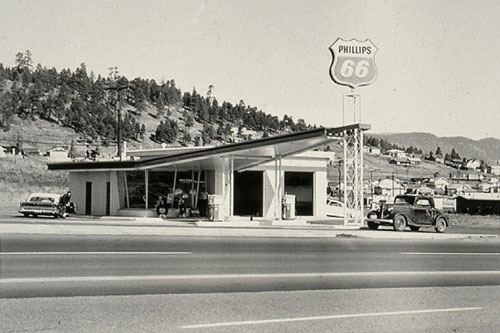Left to its own devices the camera can be nothing more than a slack-jawed, dumb recorder of whatever is put in front of it � which is exactly what Ed Ruscha allowed it to be in a series of seminal books he produced in the 1960s, milestones in the history of photography and pop art.
"When I grew up I just knew that photographers were ... nerds or they were pornographers, there was no real redeeming social value to somebody who has a camera and takes pictures. But then as I started seriously working as an artist, travelling was essential, so I was continually driving back on US66 between here and Oklahoma, when I would take all these gasoline stations" (Ed Ruscha)
Ruscha's 'Twenty Six Gasoline Stations' offered an alternative to the humanist concerns of the street photographers. They were about things rather than about people; surface rather than soul; not the human drama of the street but the taken for granted backdrop against which the drama plays out.
"I was after that kind of blank reality that the subject matter would present. I was met with a little scepticism from some people and usually those people were more intellectual ..., but someone who worked in a gasoline station would say 'Hey, this is great!'" (Ed Ruscha)
